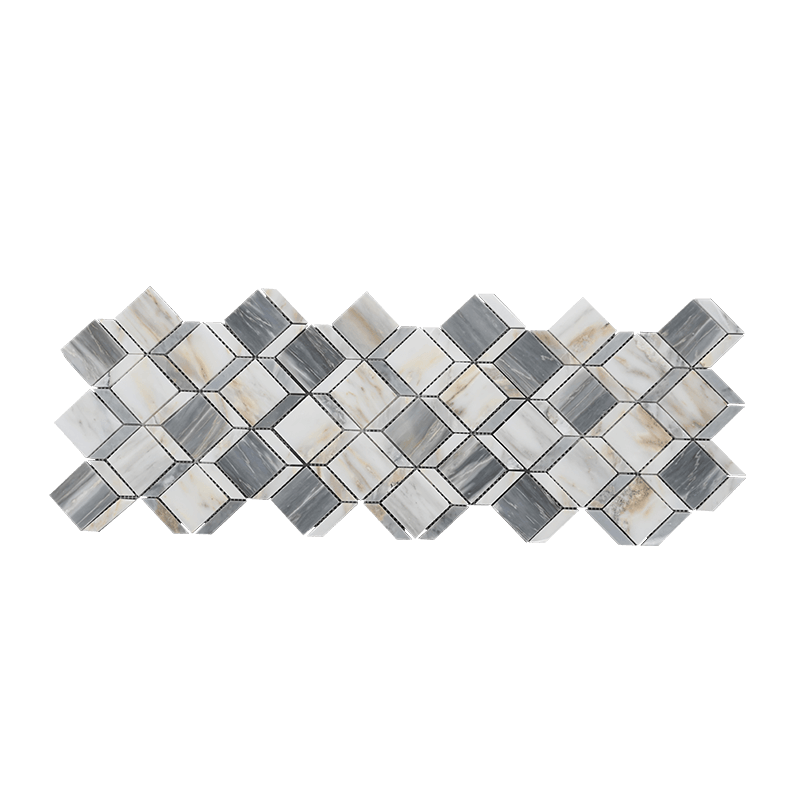Polished marble, like all natural stone materials, is inherently porous, meaning it has microscopic pores that can absorb water and other liquids if not adequately protected. In high-moisture areas like showers and swimming pools, this porosity can become a concern if the tiles are not properly sealed. Continuous exposure to moisture can cause the stone to absorb water, leading to potential issues such as discoloration, staining, or the development of mold and mildew, particularly in the grout lines. To mitigate these risks, it is crucial to apply a high-quality, penetrating sealer designed specifically for natural stone. This sealant acts as a barrier, reducing the stone's porosity and helping to repel water and other substances that could cause damage.
Polished marble mosaic tiles, due to their smooth and glossy finish, tend to be more slippery when exposed to water compared to their honed or textured counterparts. This makes slip resistance a critical consideration when choosing marble for areas that are frequently wet, such as showers, pool surrounds, and bathroom floors. The polished finish, while aesthetically appealing, can increase the risk of slipping, especially in spaces where safety is paramount. However, one solution is to opt for smaller mosaic tile patterns, as the increased number of grout lines between the individual tiles can enhance traction and reduce slipperiness. The use of non-slip mats or treatments that improve the slip resistance of the tile surface can provide extra safety without compromising the elegance of the polished marble. It's essential to strike a balance between aesthetics and safety when designing wet spaces with polished marble mosaic tiles.
Marble is composed primarily of calcium carbonate, making it particularly sensitive to acidic substances. In high-moisture areas, such as bathrooms and pool decks, it’s common for the tiles to come into contact with various chemicals, including those found in shampoos, soaps, and cleaning agents, as well as pool water treatments containing chlorine or other harsh chemicals. These substances can lead to etching—a chemical reaction that dulls the polished surface of the marble and creates visible marks. Staining can also occur when liquids penetrate the surface of the marble if it is not properly sealed. To protect polished marble mosaic tiles in these environments, it is recommended to use pH-neutral, stone-safe cleaners, and avoid acidic or abrasive products that can damage the finish. Regular maintenance, including wiping down the tiles after exposure to moisture and using protective mats or barriers, will help preserve the pristine look of polished marble in moisture-rich environments.
Maintenance is a critical factor in ensuring the performance and aesthetic longevity of polished marble mosaic tiles in high-moisture environments. While sealing provides a protective barrier against water and stains, ongoing care is essential to keep the marble in optimal condition. Regular cleaning with a soft cloth or mop and a non-acidic, stone-safe cleaner will prevent soap scum, mineral deposits, and other residues from dulling the marble’s polished surface. It is advisable to ensure proper ventilation in areas such as bathrooms and showers, as this helps reduce excess moisture and humidity, preventing the buildup of mold or mildew in grout lines. For outdoor installations around pools, weatherproof sealers may also be necessary to protect the marble from environmental factors like UV rays and temperature fluctuations.
